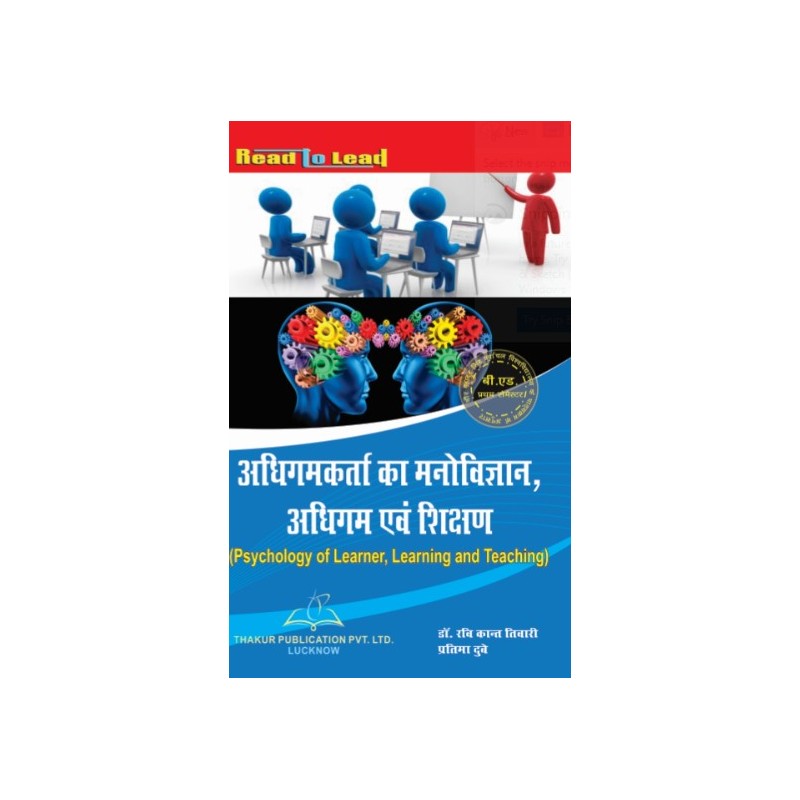Categories
- Pharmacy
- Nursing
-
MBA
-
BBA
- U.P. State University
- Veer Bahadur Singh Purvanchal University, Jaunpur
- Chaudhary Charan Singh University, Meerut
- Dr. Bhimrao Ambedkar University, Agra
- Chhatrapati Shahu Ji Maharaj University, Kanpur
- Mahatma Jyotiba Phule Rohilkhand University, Bareilly
- Mahatma Gandhi Kashi Vidyapith, Varanasi
- Dr. Ram Manohar Lohia Avadh University, Ayodhya
- Deen Dayal Upadhyaya Gorakhpur University
- Prof. Rajendra Singh (Rajju Bhaiya) University, Prayagraj
- BCA
-
B Ed
- Lucknow University B.Ed Books
- Chaudhary Charan Singh University/Maa Shakambhari University, Saharanpur
- Dr Bhim Rao Ambedkar University, Agra
- Mahatma Gandhi Kashi Vidyapeeth, Varanasi
- Chhatrapati Shahu Ji Maharaj University
- Prof. Rajendra Singh (Rajju Bhaiya) University, Prayagraj (PRSU)
- Mahatma Jyotiba Phule Rohilkhand University(Mjpru), Bareilly
- Dr. Ram Manohar Lohia Avadh University, Ayodhya
- Bundelkhand University, Jhansi
- Deen Dayal Upadhyaya Gorakhpur University
- Veer Bahadur Purvanchal University (VBPU)
- Maharaja Suhel Dev State University ,Azamgarh (MSDSU)
- Raja Mahendra Pratap Singh State University, Aligarh (RMPSSU)
- Barkatullah Vishwavidyalaya (Bhopal)
- Jiwaji University (Gwalior)
- Vikram University (Ujjain)
- Dr. Harisingh Gour University (Sagar)
- Devi Ahilya Vishwavidyalaya (Indore)
- Rani Durgavati Vishwavidyalaya (Jabalpur)
- Awadhesh Pratap Singh University (Rewa)
- Maharaja Chhatrasal Bundelkhand University (Chhatarpur)
- D. EL. ED
- TET
-
B Com
-
B Sc
- B.Sc. U.P. State Universities Common Syllabus NEP
- Veer Bahadur Singh Purvanchal University, Jaunpur
- University of Lucknow
- Chaudhary Charan Singh University, Meerut
- Madhya Pradesh
- Chhatrapati Shahu Ji Maharaj University, Kanpur
- Dr. Bhimrao Ambedkar University, Agra
- Mahatma Gandhi Kashi Vidyapith, Varanasi
- DEEN DAYAL UPADHYAYA GORAKHPUR UNIVERSITY
- Prof. Rajendra Singh (Rajju Bhaiya) University, Prayagraj
- Dr. Ram Manohar Lohia Avadh University, Ayodhya
- Mahatma Jyotiba Phule Rohilkhand University, Bareilly
- Uttarakhand State Universities
- B.Sc. Bihar Universities Common Syllabus NEP
- University of Rajasthan (Jaipur)
- Haryana
-
B A
- B.A. Of U.P. State Universities Common Syllabus NEP
- Veer Bahadur Singh Purvanchal University, Jaunpur
- University of Lucknow
- Chaudhary Charan Singh University, Meerut
- Chhatrapati Shahu Ji Maharaj University, Kanpur
- Dr. Bhimrao Ambedkar University, Agra
- Mahatma Gandhi Kashi Vidyapith, Varanasi
- Deen Dayal Upadhyaya Gorakhpur University
- Prof. Rajendra Singh (Rajju Bhaiya) University, Prayagraj
- Dr. Ram Manohar Lohia Avadh University, Ayodhya
- Mahatma Jyotiba Phule Rohilkhand University, Bareilly
- Madhya Pradesh
- Uttarakhand
- Bihar
- University of Rajasthan (Jaipur Syllabus as Per NEP2020)
- Haryana NEP-2020
- B Tech
Psychology Of Learner, Learning And Teaching ( अधिगमकर्ता का मनोविज्ञान,अधिगम एवं शिक्षण)

ISBN No.- 978-93-89294-68-2
Dr. Ravikant Tiwari
Pratima Dubey
₹230.00
Tax excluded
ISBN No.- 978-93-89294-68-2
Dr. Ravikant Tiwari
Pratima Dubey
PSYCHOLOGY OF LEARNER, LEARNING & TEACHING
UNIT-1: LEARNER AS DEVELOPING INDIVIDUAL
- Concept of learning and teaching-Meaning ,scope,need and importance.
- Variables in the teaching process-The learning tasks (Instructional objectives), Learner behavior (Entry behavior, Learning style), Teacher behavior(Competence, Expectation, Personality and Teaching style).
- Learning theories -Trial & error, conditioning (classical and operant) and social learning, cognitive (insightfull learning and information processing model).
- Role of learner in learning situations.
- Role of teacher in teaching learning situation –Transmiter of knowledge, model,
facilitator, negotiator, co-learner.
UNIT-2: DEVELOPMENT AND LEARNING
- Meaning and principles of development, relationship between development and learning.
- Dimension of individual development: physical, cognitive, language, affective, social and moral, their interrelationships and implications for teachers relevent ideas of piaget, Erikson and Kohelberg).
- Stages of development: development task with focus on processes growth and development across various stages from infancy to post-adolescence (special emphasis on concerns of adolescence.
- Meaning of ‘cognition’ and its role in learning.
- Socio-cultural factors influencing cognition and learning.
- Facilitating holistic development(for self and society).
UNIT-3: MENTAL PROCESS OF LEARNING
- Thinking process - Concept and tools.
- Types of thinking - Divergent, convergent, critical, reflective and lateral thinking.
Mental process:
- Memory - Concept, types of strategies to develop memory.
- Forgetting - Nature, causes,factors and strategies to minimize forgetting.
- Imagination - Meaning, types and educational implications.
UNIT-4: INDIVIDUAL DIFFERENCE AMONG LEARNERS
- Dimensions of differences in psychological attributes - Cognitiveabilities, interest,aptitude, creativity, personality, values. Under standing learner’s from multiple intelligencs perspective with a focus on gardener’stheory of multiple intelligences, Implicationsfor teaching-learning in the light of changing concept of intelligence, including emotional intelligence. Differences in learners based on predominant ‘learning styles’.
Differences in learners based on socio-cultural contexts: Impact of home languages of learners’ and language of instruction, impact of differential ‘cultural capital’ of learners.
- Understanding differences based on a range of cognitive abilities: learning difficulties, slow learners and dyslexics, intellectual deficiency, intellectual giftedness. Implications for catering to individual variations in view of ‘differece’ rather than ‘deficit’ persepective.
VBSPU/2019/B.Ed/1/03
49 Items

